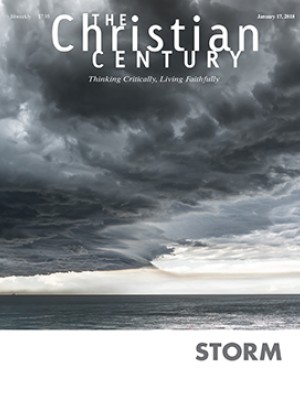Freedom of religion is at heart of struggle for democracy in Asia
The reprisal against former Jakarta governor Basuki Tjahaja Purnama has created urgency in Indonesia and elsewhere for protecting civil liberties.

Maybe it is time to stop asking the question, frequently raised in the West, of whether democracy and Islam are compatible. The more salient question appears to be how any democratic nation can preserve itself if freedom of belief is not protected.
At a recent gathering in Jakarta organized by the International Association of Religion Journalists and Sejuk, an association of Indonesian journalists, participants from 15 Asian nations revealed how political appeals to religious constituencies have roiled democracies across the region and the world.
Read our latest issue or browse back issues.
In Myanmar, the military has engaged in what many throughout the world have described as the ethnic cleansing of its Rohingya Muslim minority population with the support of extreme nationalist Buddhist leaders.
In India, Hindu extremists have carried out attacks against Christians, Muslims, and other minorities amid concerns that a rising nationalist movement in government tacitly supports the violence.
In Jakarta, the capital of the world’s largest Muslim-majority nation, concerns for the future of democracy were heightened when a popular Christian governor was accused of blasphemy and sentenced to two years in prison in May in what was widely considered an effort to unseat him.
But leading figures in government, journalism, academia, and religion declared that the reprisals against former Jakarta governor Basuki Tjahaja Purnama, known as Ahok, do not mean that Islam is incompatible with democracy.
“Islam puts emphasis on many principles, equality, justice, and also human dignity, and these are some of the principles that clearly are also the main bones of democracy,” said Yenny Wahid, director of the Wahid Institute and a leading voice of moderate Islam in Indonesia.
Still, what happened to Ahok has created a new sense of urgency about protecting democratic freedoms, conference participants noted.
“We have had multiple free and fair elections,” Wahid said. That “is not something we should take for granted.”
Several studies have shown that Muslims throughout the world have favorable attitudes toward democracy. For example, in the latest wave of the World Values Survey, conducted from 2010 to 2014, more than 80 percent of respondents in Algeria, Pakistan, Egypt, and Turkey said a democratic political system was a very good or fairly good form of government.
But democracy is relatively new in many Muslim-majority nations. And the transition to it is rarely smooth.
Democracies in nations such as Indonesia, Turkey, and Pakistan operate under pressure to protect religious and political freedoms amid ethnic and religious tensions, the shadows of past military coups, and the unaddressed human rights abuses of authoritarian governments such as the Suharto regime in Indonesia.
Research has shown that the clearest path to a vibrant democracy is protecting the political and religious freedoms and dignity of all groups not only through the judiciary but within the culture.
This was a recurring theme at the Jakarta conference. A wide range of analysts, from journalists to democracy activists to those at the highest levels of government, spoke of the need for people from various ethnic and religious groups to work together in mutual respect.
“What we want to build in this country is the importance of respecting differences,” Abdul Mu’ti, secretary general of Muhammadiyah, a moderate Islamic movement, said at the seminar on democracy and Islam. “We can express our identity, actualize our ideas, respect our differences, with full respect to others who are different.”
Harmony between people of different belief groups is possible but not a given, said Indonesia’s foreign minister, Retno Marsudi, in a special address. “It must be nurtured by both the government and society,” she said. “Democracy and Islam are compatible.”
The excitement was palpable in the packed university auditorium for the seminar on democracy and Islam, jointly sponsored by the Association of Religion Data Archives, Sejuk, the IARJ, and the university.
Meghana Bahar, a Malaysian journalist, shared a photo of the crowded hall on social media with the observation, “Picture of #democracy—room full of students, activists & journalists discussing #religion openly.”
In summing up the seminar, moderator Endy Bayuni, editor of the Jakarta Post and executive director of the IARJ, said, “We can still remain positive and optimistic about the future of democracy.”
But it requires good people to stand up for freedom and civility, and to oppose violence and hate speech.
“We all have to do our part,” Bayuni said. “If we want democracy to continue, it’s up to the people as well.” —theARDA.com
Reprinted with permission of the Association of Religion Data Archives






